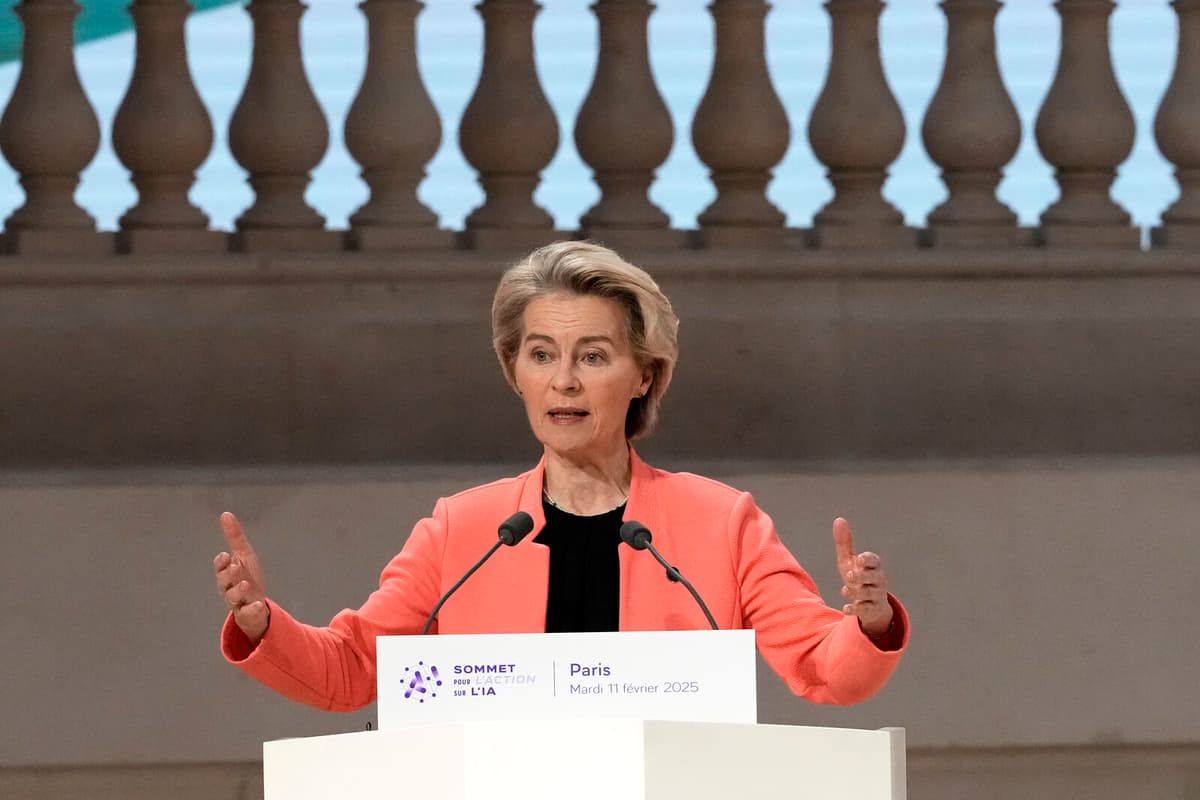The new EU initiative is being announced in a speech at the ongoing major AI conference in Paris.
It will be the largest private-public partnership in the world for the development of reliable AI, says EU Commission President Ursula von der Leyen.
The idea is to mobilize 200 billion euros (approximately 2,250 billion kronor) in investments for AI technology, including a new European fund of 20 billion euros to build "AI gigafactories" – a kind of large-scale server facilities – across Europe.
Vance speaks
Von der Leyen's bid comes immediately after US Vice President JD Vance presented his view on AI development at the same location.
He wants to see a more optimistic view of AI technology.
It will make us more productive, bring more prosperity, and make us freer, promises Vance.
In return, he demands simpler and freer regulations, not least from the EU's side.
We need international systems that promote the creation of AI technology, rather than stifling it. The US cannot and will not accept that, says Vance.
Advertisement
Different direction
Vice President Vance emphasizes that the US wants to lead the development and repeatedly highlights the benefits he sees for the US and for American workers and companies.
From von der Leyen, a clearly different direction is heard.
AI can be a gift to humanity, but we must ensure that the benefits are shared. We want an AI that everyone collaborates on and that everyone can benefit from. That is our European way, says von der Leyen in Paris.
The difference is also evident in that 61 countries, including Germany, France, China, and India, concluded the Paris meeting with a joint statement to ensure that "AI is open, inclusive, transparent, ethical, secure, and trustworthy". The US - and also the UK - chose not to sign the statement.
The EU's new AI investment fund of 20 billion euros will finance four additional "gigafactories" around the EU, which will "specialize in developing complex and very large AI models". The goal is for all companies to have access to large-scale computing power.
The gigafactories are expected to be at least four times larger than the AI factories already being developed in the EU, where seven pilot projects – including one at Linköping University – received approximately 17 billion Swedish kronor in December. Five more similar projects will soon be announced.






